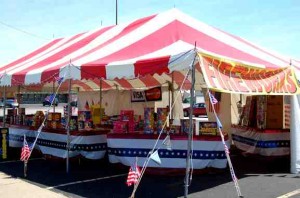Businesses that have inventory often have a seasonality to their sales. Holding unsold inventory for a year to wait for the next peak season ties up valuable capital. Savvy business owners mark up prices when demand is high and steeply discount merchandise at the end of the season to convert surplus inventory into cash. For example, people generally BBQ in the summer and particularly during holidays, so BBQ prices are generally not discounted during the summer or around popular holidays for barbecuing.
However, excess inventory at the end of the summer is often sold at discount, or sold to discount outlets, to convert inventory into cash. After all, it is hard to sell charcoal briquettes in winter (unless you live in the southern hemisphere). Likewise, coats sell for list prices during the winter and are steeply discounted as the weather turns warmer.
Sometimes the price widow is not based on a season but is tied to a specific day. Christmas ornaments are priced to maximize revenue before Christmas and are steeply discounted after the holidays. The same can be true for fireworks before and after the 4th of July. Pricing by season does not only apply to product companies but also to service companies. It is hard to find landscaping work in the dead of winter or to teach people to snowboard in the summer.
How can you use the concept of pricing by season to maximize revenues?










